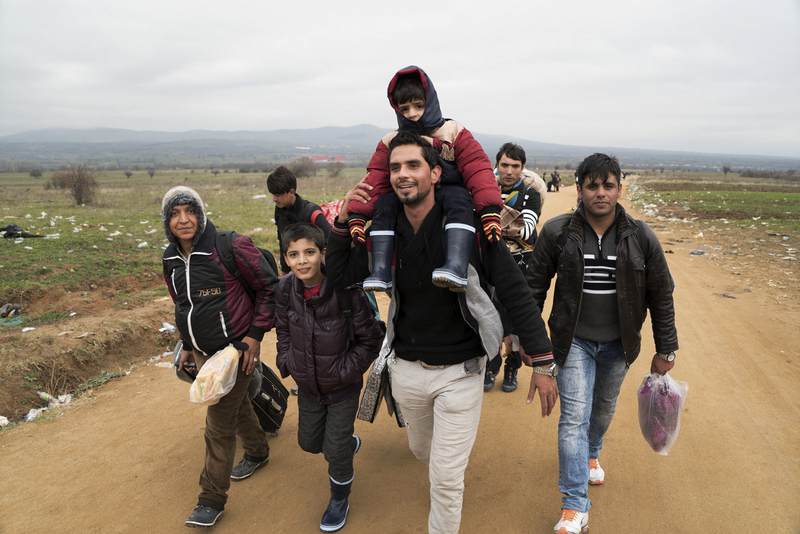We can do more to help refugees fleeing from conflict
By the Bishop of Portsmouth, the Rt Rev Christopher Foster

Refugees on the Serbian-Macedonian border, who are being helped by Christian Aid partners Philanthropy with food and clothes
IMAGINE for a moment that extremists seize power in the UK, and fighting breaks out between different sides that escalates into a civil war.
Suddenly bombs are going off in your street, your home is destroyed and your family’s lives are at risk. In desperation, you decide to emigrate. Transport is a problem, so you end up crossing the Channel in a private fishing boat.
You finally reach safety, where you look forward to starting again with a new home and a new job. There is mountains of paperwork, in a language you don’t understand. But that’s not your worst problem.
The hardest thing is people’s attitudes. Many assume you’re here to sponge off the state. Some accuse you of being precisely the kind of extremist that you’re actually running away from. You keep your head down, finding a menial job and paying your rent and your taxes, but it is hard to live as a refugee.
If this seems scarcely believable, just think for a moment – it is precisely the experience of asylum seekers and refugees from places like Iraq and Syria. Many come to the UK expecting welcome and safety, and instead experience suspicion or hostility.
Today more than 65 million people are ‘displaced’ around the world. They have been forced from their own homes by violence, fear or desperation. Each is deserving of safety, freedom and hope, just as we would be if the situation were reversed.
I’m proud to say that churches have been at the forefront of welcoming refugees and asylum seekers. There is a drop-in twice a week at All Saints Church at the top of Commercial Road where they are given food, clothes, and legal advice.
The Archbishop of Canterbury is providing a home for Syrian refugees in the grounds of Lambeth Palace. Many churches across the UK are trying to do something similar.
We’re not just doing it because it’s right to offer compassion to those in desperate need. We’re also doing it because we want to celebrate what people from other cultures have to offer.
The UK has a proud history of supporting people forced from their homes, including Jewish children fleeing from Germany in the 1930s, Ugandan Asians escaping from Idi Amin’s regime in the 1970s, and Kosovan refugees in the 1990s. Generations of refugees have made a positive, life-affirming contribution to our society.
We have chosen to leave the EU, but that doesn’t mean turning our back on refugees fleeing from violence and conflict. As one of the world’s richest countries, we can do more. C of E bishops have already called on the UK government to accept more Syrian refugees.
And as individuals, we can affirm the inherent worth and dignity of each refugee by finding out their stories. Discovering why someone had to come here is the first step towards recognising our shared humanity.